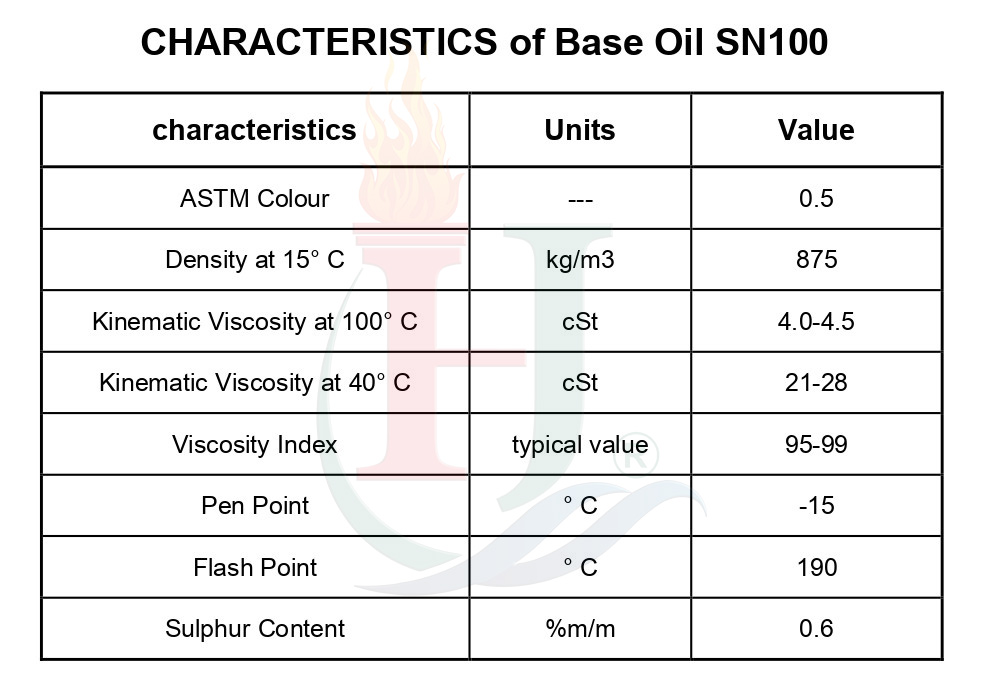Definition Of Base Oil SN100
Base Oil SN100 is a light base oil with its parameters being at the low end for lubricant stock. It is a Group I base oil made by further processing vacuum distillates of specific crude oil fractions. It is mostly used in lubricant and lubricant additives production.
Base oil is referred to as a base for lubricants. The most important constituent of the volume of lubricants is base oil and, on average, constitutes more than 1% of the formulation of a lubricant. In some lubricants (compressor and hydraulic oil) 2% of the oil is base oil and only 2% is additives. Base oils can be obtained from petroleum or non-oil sources. Most of the world’s base oils come from crude oil refining. The major constituents of base oils are paraffinic, naphthenic and aromatic compounds.
Chemical properties of base oil and how it affects the performance of the final lubricant
1.Volatile: Oil depletion, oil thickening and sediment formation.
2.Surface activity: foaming, air release, emulsion formation and pressure.
3.Oxidation: Formation of sediments, oil concentration, sludge formation and corrosion of metals.
4.Viscosity: Low temperature fluidity, energy loss, wear protection and proper cooling.
5.Solvent power: engine cleanup, sealant compatibility, process applications and formulation stability.
Applications Of Base Oil SN 100
1.General purpose oils
2.Mould oil
3.Transmission fluids
4.Gear oils
5.Metal working fluids
6.Additives
7.Hydraulic oils
8.Transformer oils
Packing of Base Oil SN 100
Base oil packed in new or used 180 kg drums, iso tank, flexitanks, and bulk shipments. Each 20-foot container takes 80 drums.
Handling health & Safety
Lubricants consisting of highly refined mineral oils with specification additives. In normal conditions of use, this lubricant presents no particular toxic hazard. All lubricants, of any kind should be handled with great care, particularly avoiding can contact with the skin.
Prevent any splashing, and keep away from combustible materials. Store undercover and away from any risk of pollution. Dispose of the used oil correctly; don’t pour down drains, into watercourses or the soil.









